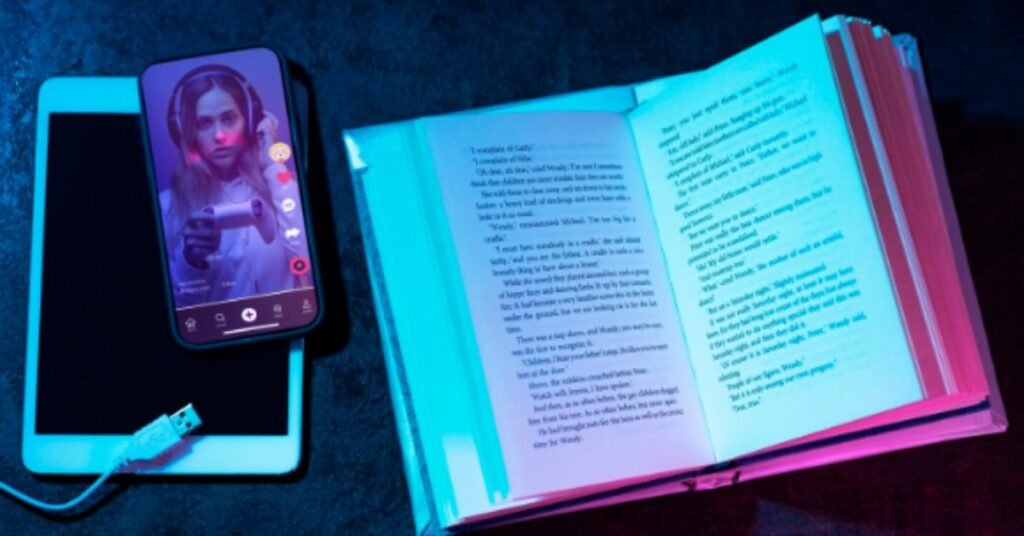Quick Answer / Key Takeaway
Literoticatags are digital story labels that help categorize fiction by theme, tone, and genre. They make it easier for readers to discover what they love and for writers to reach the right audience. In 2025, these tags have become an essential SEO and storytelling tool across all major writing platforms.
Introduction
As online fiction grows rapidly, finding the right story can feel overwhelming. That’s where literoticatags come in — small but powerful metadata labels that help readers navigate millions of stories. They organize fiction into searchable categories, making discovery smoother and more personalized.
Whether you’re browsing for a romance with a twist or a futuristic thriller, these tags quietly guide the algorithm — connecting you with exactly what you’re looking for.
How Literoticatags Work
Think of literoticatags as the “hashtags” of online literature. When writers upload stories, they add tags describing the story’s genre, tone, or setting — like fantasy adventure, dark romance, or first-person narrative.
Platforms then use these tags to recommend related stories. Some sites even use AI-based tagging, scanning the story automatically to suggest accurate tags. This system helps both authors and readers:
- Authors get more visibility through keyword relevance.
- Readers find better recommendations based on preferences.
By 2025, tagging has become an intelligent discovery system — a mix of creativity and data science.
Why People Search for Literoticatags
1. For Readers
Tags make reading personal. Searching through literoticatags lets users filter exactly what they want — for instance, “slow-burn mystery” or “post-apocalyptic drama.”
2. For Writers
Writers use tags as part of their SEO strategy. Correct tagging helps their stories rank higher in internal searches and even on Google. A few smartly chosen tags can attract thousands of organic views.
3. For Platforms
Platforms depend on tagging for personalization. Algorithms learn what each reader likes, building customized reading lists and recommendations.
Are Literoticatags Safe and Useful?
Absolutely. Literoticatags themselves are simply data markers — they’re safe and legal to use across any platform. However, misleading tags can confuse readers, which is why most modern platforms now monitor them closely.
From an SEO standpoint, using literoticatags correctly is worth it. They increase visibility, engagement, and help your content reach its intended audience — all without needing paid promotion.
The Growing Impact of Literoticatags in 2025
In 2025, literoticatags are no longer optional. They’ve become part of the storytelling infrastructure. Writers now analyze which tags perform best, while platforms use tagging data to spot reading trends.
For example:
- A rise in “AI love stories” tags shows growing interest in tech-themed romance.
- Tags like “eco-fiction” and “space exploration” reflect environmental and futuristic curiosity.
In this sense, literoticatags don’t just organize stories — they mirror cultural shifts and reading patterns around the world.
Best Alternatives to Literoticatags
Other platforms use similar systems under different names:
| Platform | Tag Type | Unique Feature |
|---|---|---|
| Wattpad | Hashtags | Combines tags with trending analytics |
| AO3 | Community tags | User-generated and flexible |
| Medium | Topic labels | Ideal for articles and essays |
| Substack | Topic filters | Great for newsletters |
All of these tagging systems share one purpose — making stories discoverable and connecting writers to readers seamlessly.
Final Take
In an era where millions of stories compete for attention, literoticatags act as invisible guides, helping the right stories find the right readers.
My expert opinion? They’re the backbone of digital storytelling. As AI and SEO tools evolve, literoticatags will continue shaping how we read, write, and recommend fiction — quietly but powerfully influencing the way stories travel across the internet.







